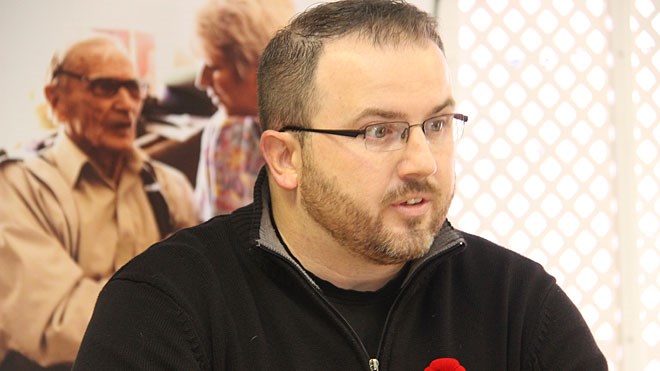Ninety-one per cent of the long-term care workers who responded to the union's survey said they do not feel satisfied with the level of care they are able to provide for the residents of their patient assignments.
In addition, 97 per cent of respondents identified not enough staff and heavy workloads as key reasons they cannot provide quality care to long-term care residents.
Tyrrell said the province stopped mandating minimum staffing levels for long-term care homes in the mid-1990s.
Based on internal surveys with CUPE members, the union determined that one personal support worker must care for up to 15 residents during a day shift, and up to 42 residents during night shifts.
Registered practical nurses, says CUPE, are individually responsible for anywhere from 30 to 42 residents, depending on the shift.
“We're walking away from residents who are crying because we have to get to the next person,” said Dorothy Winterburn, a personal support worker based in Minden, Ont., with 13 years experience in long-term care.
Winterburn was in Sudbury Monday for the report's official launch.
She said staffing levels have decreased since she started her career, and residents have generally arrived at her long-term care facility with greater needs, due to mobility problems or dementia.
“The demand of care is extremely high, and it's only going to get worse,” Winterburn said. “We need to care for these people.”
To provide long-term care residents with the support they require, CUPE has asked the province to mandate a minimum of four hours of care for every resident, per day.
The union estimates the province would need around 50,000 more personal support workers to meet that minimum of care.
“It is a huge investment, but I think it's an investment that needs to happen,” said Tyrrell.
While Tyrrell acknowledged Ontario's $10.5-billion deficit, he said the federal government also has a role to play in addressing the long-term care deficit.
“It's no secret that transfer payments have been cut,” he said. “This isn't just a provincial government problem.”
CUPE plans to lobby the federal government ahead of the 2015 federal election, Tyrrell said, to push for more dollars from the federal surplus to go toward long-term care services.
In a written statement to NorthernLife.ca the Ministry of Health and Long-Term care said the province has almost doubled funding to long-term care homes from $2.1 billion in 2003-2004 to $3.9 billion in 2014-2015.
“We have also made substantial investments to expand staffing in long-term care homes with 2,500 more personal support workers and 900 additional nurses working in LTC (long-term care) homes since 2008. As a result, the average hours of direct care per resident day has increased to 3.437 in 2013 from 3.156 in 2008,” the statement said.
Join Sudbury.com+
- Messages
- Post a Listing
- Your Listings
- Your Profile
- Your Subscriptions
- Your Likes
- Your Business
- Support Local News
- Payment History
Sudbury.com+ members
Already a +member?
Not a +member?
Sign up for a Sudbury.com+ account for instant access to upcoming contests, local offers, auctions and so much more.
